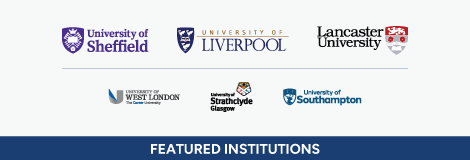Every parent dreams of witnessing their child excel in their chosen path, grow, and succeed in life, and choosing the right Education Board in India is crucial for their academic journey and future success.
What are these Education Boards in India, and how do you choose the right one? Education Boards in India, established in 1921, define academic approaches, conduct Class X and XII examinations, and issue certificates. Each board has unique teaching methods, learning programs, curriculum requirements, assessment criteria, and test administration procedures.

Primary Education Boards in India
Top Indian Boards
- State Boards
- Central Board of Secondary Education (CBSE)
- Council for the Indian School Certificate Examination (CISCE)
- National Institute of Open Schooling (NIOS)
Top International Boards in India
- International Baccalaureate (IB)
- Cambridge International Examinations (CIE)
- French Baccalaureate (FB)
- Canadian Board
Top Indian Boards
State Boards in India
State Boards in India govern the school education system within each state, ensuring quality and standardisation. Their objective is to provide context-specific education that meets regional needs, making it relatable and meaningful to students within the state.
Merits
-
Flexibility: State boards often provide the choice of subjects, allowing them to opt for issues aligned with their interests, career aspirations, and regional requirements.
-
Affordable and Accessible: State Boards are usually easier to get into, offer subsidised tuition fees and often provide scholarships to deserving students. Their textbooks are readily available and designed to cater to diverse learners.
Challenges
Recognition Beyond the State: State boards' limited recognition beyond state boundaries can restrict opportunities for students pursuing higher education or employment outside their home state.
Central Board of Secondary Education (CBSE)
CBSE is a national-level education board in India that operates under the Union Government of India. It offers a comprehensive curriculum that prepares students for higher education and various competitive examinations.
Merits
-
National Recognition: CBSE is recognised and accepted by various universities, colleges, and educational institutions across India. This makes it suitable for students aspiring to appear for national-level competitive examinations such as JEE and NEET.
-
Standardised Assessments: This helps students whose families have a transferable job or frequently relocate, as CBSE schools are widely available across different states in India.
-
Continuous and Comprehensive Evaluation (CCE): CBSE implements a CCE system that emphasises the assessment of students' overall performance, including their academic and co-curricular activities.
Challenges
Highly Competitive Environment: The emphasis on national-level competitive examinations can create a highly competitive atmosphere among students, adding pressure and stress.
Council for the Indian School Certificate Examination (CISCE)
The Council for the Indian School Certificate Examinations (CISCE) is a national-level private education board in India focusing on holistic education, critical thinking, and preparing students for higher education and the evolving world.
Merits
-
Preparation for International Education: CISCE's international recognition and alignment with global educational standards make it suitable for students considering higher education abroad.
-
Balanced Emphasis on Subjects: The curriculum prioritises equal importance across all subjects, including science, arts, and languages. It offers diverse elective options, enabling students to pursue their interests and explore various academic disciplines.
Challenges
Rigorous Curriculum: Some students and educators find the CISCE curriculum to be demanding and extensive, making it one of the toughest Boards in India.
National Institute of Open Schooling (NIOS)
The National Institute of Open Schooling (NIOS) is a Ministry of Education, Government of India organisation and one of the largest open schooling systems. It offers diverse courses at secondary and senior secondary levels, promoting lifelong learning, vocational skills, and educational empowerment for learners.
Merits
-
Open and Flexible Learning: NIOS aims to provide inclusive educational opportunities to those unable to attend regular schools, including Adult Learners wishing to complete their education. The learner-centric curriculum is self-paced, aligned with national standards, and allows up to 5 years for exam completion.
-
Vocational and Skill Development: NIOS offers vocational courses and skill-based programs to equip learners with practical skills and enhance their employability.
Challenges
Limited Face-to-Face Interaction: Due to the nature of distance education, NIOS learners may have limited opportunities to interact with teachers and peers, which can impact collaborative learning and social development.
Top International Boards in India
International Baccalaureate (IB)
The International Baccalaureate (IB) is a globally recognised educational foundation providing programs for students aged 3 to 19. Based in Geneva, Switzerland, the IB operates in 150 countries and 4000+ schools and offers Primary and Middle Years Programmes (PYP & MYP), Diploma Programmes (DP) and Career-related Programme (CP).
Merits
-
Emphasis on Core Components: The IB programs include core components such as Theory of Knowledge (TOK), Extended Essay (EE), and Creativity, Activity, and Service (CAS) that foster intellectual exploration, independent research, and community engagement.
-
Global Perspective: The IB is ideal for students seeking an education that promotes international perspectives, cultural diversity, and a broad worldview. The rigorous curriculum of the IB Diploma Programme also prepares students for university-level studies, making it highly valued by universities worldwide.
-
Learner-Centred Approach: The IB emphasises student agency, active engagement in learning, and the development of critical thinking, research, and communication skills.
Challenges
Intensity and Workload: The IB programs are known for their rigorous curriculum, extensive coursework, and high expectations, which can result in significant workload and time management challenges for students.
Cambridge International Examinations (CIE)
Cambridge International Examinations (CIE), now Cambridge Assessment International Education, offers international qualifications and assessments for students aged 5 to 19, fostering critical thinking and global education for academic and professional success.
Merits
-
Global Recognition: Cambridge qualifications are recognised and respected by universities, educational institutions, and employers worldwide, providing students with a pathway to higher education and career opportunities.
-
Emphasis on Skills Development: Cambridge International Examinations focus not only on subject knowledge but also on developing transferable skills such as critical thinking, research, collaboration, and independent learning.
-
Support and Resources: Cambridge offers comprehensive resources to enhance the teaching and learning experience. The curriculum emphasises project-based, hands-on learning, prioritising activity, play, and experiential education over traditional instruction.
Challenges
While it follows an international curriculum, the primary emphasis is consistently placed on exams, with classwork and homework not factored into students' final assessments.
French Baccalaureate (FB)
The French Baccalaureate is an internationally recognised diploma awarded to students who have completed their secondary education in France or French schools abroad.
In India, French international schools offer the French Baccalaureate and is now recognised by the Association of Indian Universities (AIU). This recognition allows Indian students with the French Baccalaureate to apply to Indian universities and colleges for higher education.
Merits
-
Global Recognition: The French Baccalaureate is recognised by universities worldwide, providing students with opportunities for higher education in prestigious institutions globally. It is particularly advantageous for students pursuing higher education or employment opportunities in France or other French-speaking countries.
-
International Perspective: Studying the French Baccalaureate encourages cultural exchange, international understanding, and exposure to diverse perspectives. The French Baccalaureate emphasises proficiency in French, English, and other subjects, nurturing strong language skills beneficial for academic and professional pursuits.
Challenges
-
Language Proficiency: The French Baccalaureate requires a strong command of French, which may pose a challenge for students not proficient in the language.
-
Limited School and Subject Availability: The number of schools offering the French Baccalaureate in India is relatively limited, and the range of subject choices for the French Baccalaureate may not be as extensive as other boards, potentially restricting certain academic or career pathways.
Canadian Board
The Canadian education curriculum is an internationally recognised education system based on Canadian practices. It is implemented globally in multiple countries, including India, where it is offered at Maple Bear schools. These schools provide education from preschool to secondary levels.
Merits
-
Canadian Pedagogy: The curriculum draws from the renowned Canadian education system, known for its emphasis on inquiry-based learning, critical thinking, and experiential learning.
-
Bilingual Education: It emphasises bilingualism, with English and a second language being taught throughout the schooling years. This can enhance students' language skills and increase their future opportunities.
-
Holistic Development: The focus is on students' holistic development, combining academic learning with the development of social, emotional, and physical skills and providing students with a global perspective.
Challenges
Adapting a Canadian curriculum to the Indian context while ensuring cultural sensitivity and relevance to local customs and traditions can be a logistical challenge, as can adequately training all teachers in the curriculum and its teaching methods.
FAQs
How many national-level educational bodies are there in India?
There are three national-level academic bodies in India:
- Central Board of Secondary Education (CBSE)
- Council for the Indian School Certificate Examinations (CISCE)
- National Institute of Open Schooling (NIOS)
Should I complete my schooling from a national or state board of education? Which is better?
Choosing between a national or state board of education depends on your plans, career aspirations, and personal preferences. Both national and state boards have their advantages and considerations. National boards generally follow a centralised curriculum, have wider recognition, and are more suitable if you plan to pursue higher education outside your state or abroad. State boards may have a curriculum aligned with the state's requirements. They could be beneficial if you plan to pursue higher education within the state or if you want to focus on regional language and culture.
Can I pursue ICSE/ISC board education through distance mode?
The ICSE (Indian Certificate of Secondary Education) and ISC (Indian School Certificate) examinations conducted by the CISCE are generally unavailable through distance mode. These examinations require regular schooling and classroom-based learning. However, it is always advisable to check with the CISCE or the relevant education authorities for the most up-to-date information regarding distance education options for ICSE/ISC.
Which board is best for education in India?
The "best" board for education in India depends on individual preferences and requirements. CBSE (Central Board of Secondary Education) and CISCE (Council for the Indian School Certificate Examinations) are popular national boards known for their widespread recognition and quality of education.
What minimum percentage should I secure to pass the Class 12th exam?
The minimum percentage required to pass the Class 12th exam varies as per the board of education. Each board sets its passing criteria, including internal assessments and external examinations. Generally, the passing percentage is 33% to 35% for most boards in each subject.
Which board is best for India's future?
Selecting a good board for the future in India depends on individual goals and aspirations. CBSE (Central Board of Secondary Education) and CISCE (Council for the Indian School Certificate Examinations) are widely recognised and accepted by universities and colleges across India. They provide a strong foundation for higher education and competitive examinations.



 I sincerely thank SI-UK for getting me accepted to UCL. The MSc in Urban Development and Planning is extremely competitive, but the right guidance provided by SI-UK made my dream of studying at University College London a reality. The services were exceptional from beginning to end.
I sincerely thank SI-UK for getting me accepted to UCL. The MSc in Urban Development and Planning is extremely competitive, but the right guidance provided by SI-UK made my dream of studying at University College London a reality. The services were exceptional from beginning to end. 

